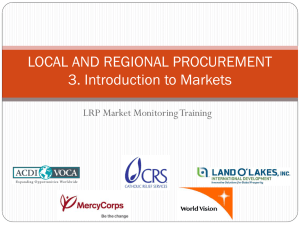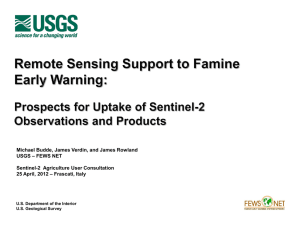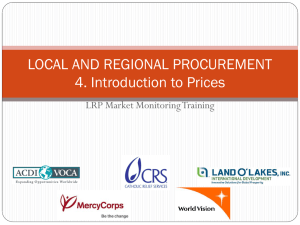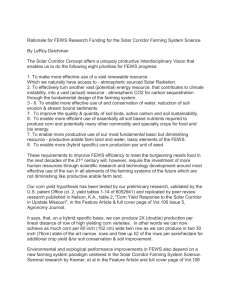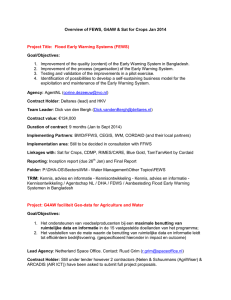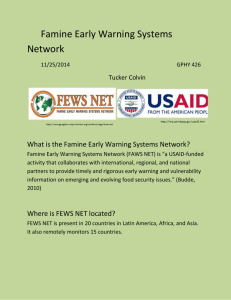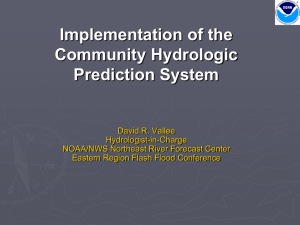FEWS NET Brochure - Famine Early Warning Systems Network
advertisement
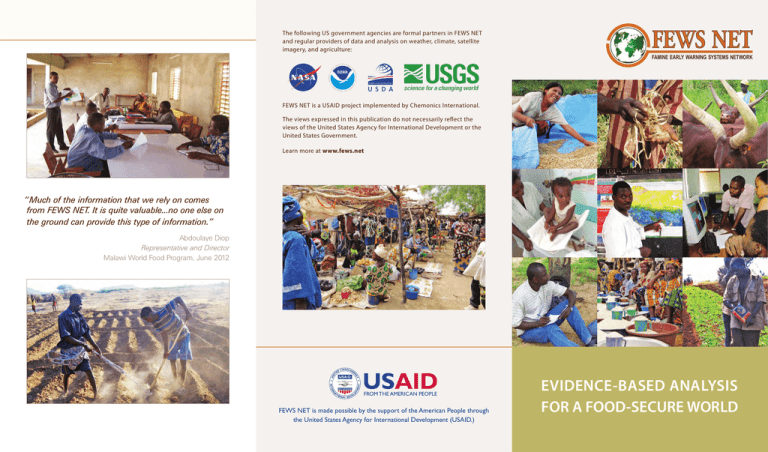
The following US government agencies are formal partners in FEWS NET and regular providers of data and analysis on weather, climate, satellite imagery, and agriculture: FEWS NET FAMINE EARLY WARNING SYSTEMS NETWORK FEWS NET is a USAID project implemented by Chemonics International. The views expressed in this publication do not necessarily reflect the views of the United States Agency for International Development or the United States Government. Learn more at www.fews.net “ Much of the information that we rely on comes from FEWS NET. It is quite valuable...no one else on the ground can provide this type of information.” Abdoulaye Diop Representative and Director Malawi World Food Program, June 2012 FROM THE AMERICAN PEOPLE FEWS NET is made possible by the support of the American People through the United States Agency for International Development (USAID.) EVIDENCE-BASED ANALYSIS FOR A FOOD-SECURE WORLD FEWS NET… EVIDENCE-BASED ANALYSIS FOR A FOOD-SECURE WORLD PARTNERS IN PREVENTING FOOD INSECURITY AND FAMINE FEWS NET, the Famine Early Warning Systems Network, is a leading provider of information and analysis on food insecurity. Created in 1985 by the US Agency for International Development (USAID) after devastating famines in East and West Africa, FEWS NET today is a valuable resource to a vast community of governments, international relief agencies, NGOs, journalists, and researchers planning for, responding to, and reporting on humanitarian crises. to spotlight emerging problems. Pioneering in its analytical approach, FEWS NET uses scenario development to forecast most likely outcomes and anticipate change six to twelve months in advance. To help government decision-makers and relief agencies plan for food emergencies, FEWS NET publishes: • monthly reports on current and projected food insecurity • up-to-the-minute alerts on emerging or likely crises • specialized reports on weather hazards, crops, market prices, and food assistance. In keeping with FEWS NET’s commitment to transparency, reports are made available at www.fews.net. FEWS NET describes the severity of food insecurity using the Integrated Food Security Phase Classification version 2.0 (IPC 2.0), a scale that the project helped design in collaboration with leaders in the international food security community. New Challenges, More Coverage With the risk of food insecurity rising in unexpected places, FEWS NET has expanded its coverage beyond the twenty countries where it has a staff presence. In 2010, FEWS NET OBJECTIVE, EVIDENCE-BASED ANALYSIS With support from a technical team in Washington, D.C., FEWS NET field staff collaborate with US government agencies, national government ministries, and international partners to collect data and produce objective, forward-looking analysis on more than thirty of the world’s most food-insecure countries. Saving Lives with Early Warning Continuous monitoring of weather, climate, agriculture production, prices, trade, and other factors, considered together with an understanding of local livelihoods, allows FEWS NET began to monitor and report on countries remotely, normally from a nearby regional office. By 2014, FEWS NET expects to conduct remote monitoring of an additional fifteen countries. GOING BEYOND EMERGENCIES TO UNDERSTAND THE BIGGER PICTURE FEWS NET also looks beyond droughts, crop failure, and price shocks to understand the underlying causes of food insecurity. Drawing on nearly three decades of innovation in research, FEWS NET contributes to the global knowledge base with integrated analysis of livelihoods, household vulnerability, nutrition, trade, and climate change. With the aim of finding solutions for chronic food insecurity, FEWS NET research and early warning reports are intended to support international development organizations tackling economic and nutritional challenges in the world’s poorest countries.
